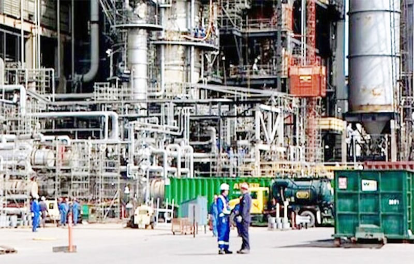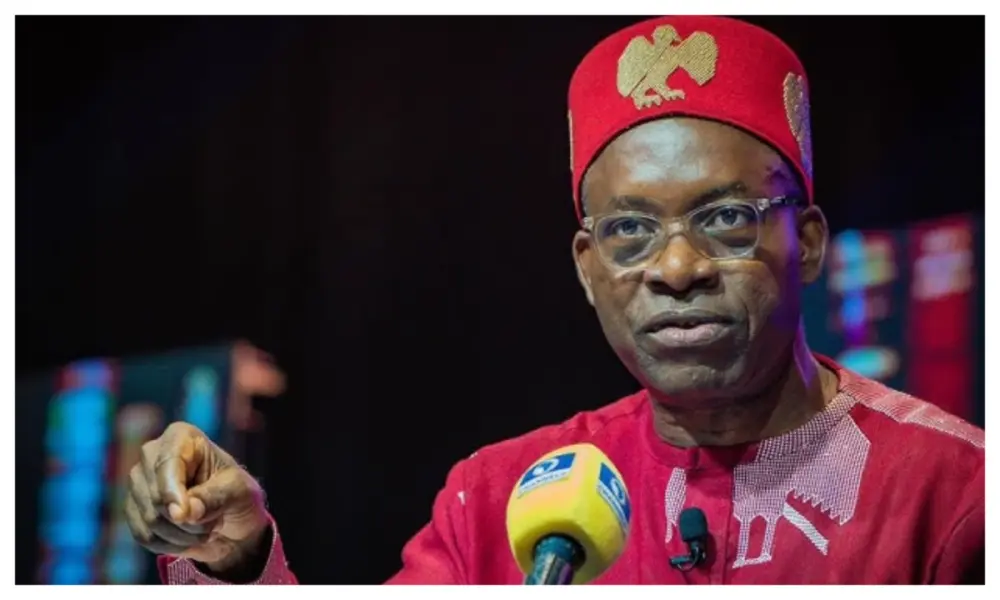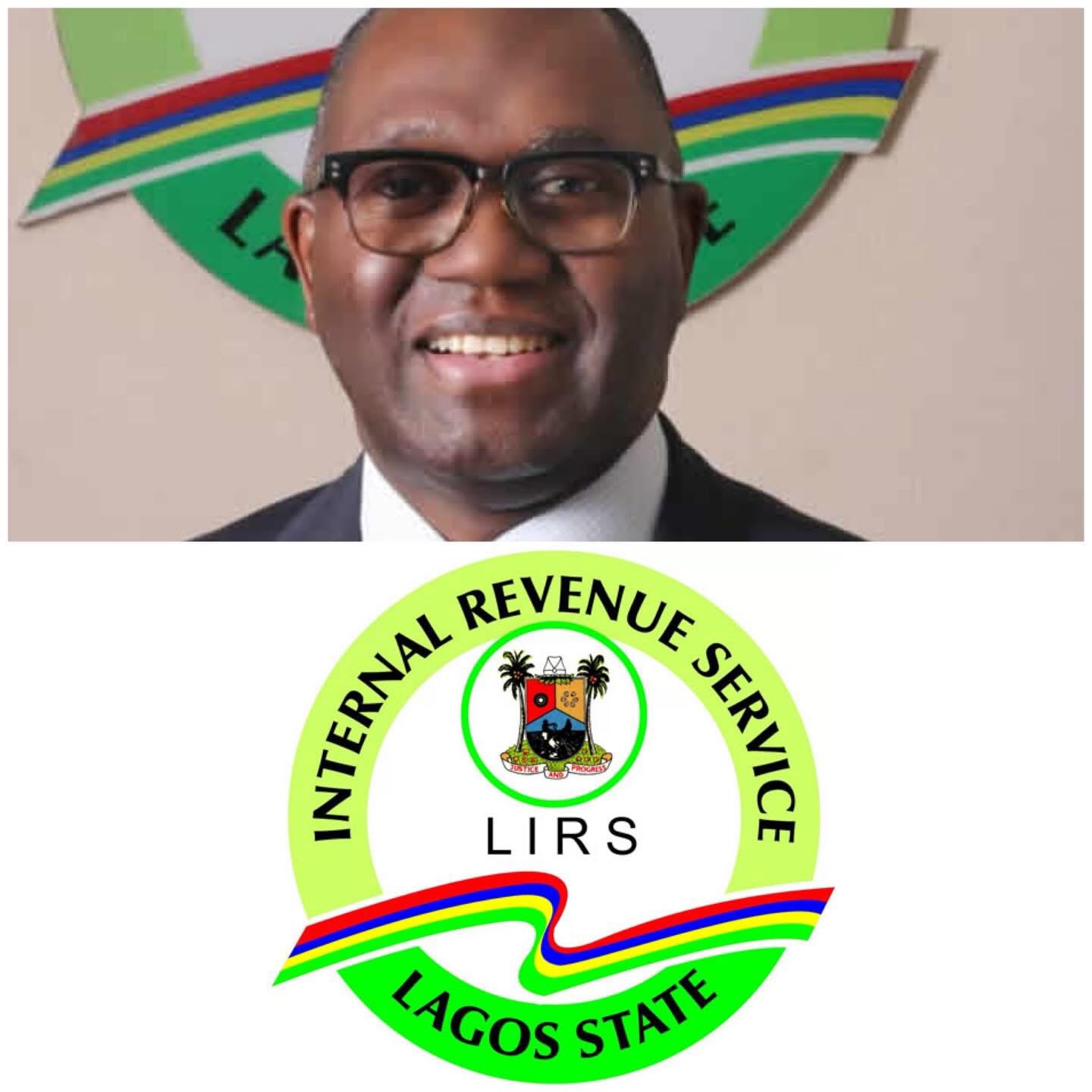Business
Why retailers, marketers dump Dangote Refinery petrol for import – Stakeholders

Petroleum Products Retailers and marketers have explained why petrol imports have persisted despite the Dangote Refinery and other local refineries’ production capacity.
The President, Petroleum Products Retail Outlet Owners Association and the Chairman, Major Marketers Association of Nigeria, Billy Gillis-Harry and Tunji Oyebanji in an exclusive interview with Ekwutosblog on Monday cited fear of healthy market competition, competitive pricing and inadequate petrol production capacity as reasons for the product’s continued import.
This comes amid the National Bureau of Statistics’ foreign trade data showing that petrol imports surged by 105 percent to N15.4 trillion at the end of 2024.
Similarly, the report indicated that fuel imports hit N930 billion in February 2025 alone, raising concerns among stakeholders in the country’s downstream sector.
Recall that the Nigerian Midstream and Downstream Petroleum Regulatory Authority said that Dangote Refinery, Port Harcourt and Warri refineries met only 50 percent of the national petroleum products consumption requirement in February 2025. #
However, in a statement last month, the president of Dangote Refinery countered NMDPRA and insisted that the $20 billion Refinery can meet 100 percent of Nigeria’s 100 percent petroleum production requirements.
Nigerians are now left in limbo amid the controversy as NNPC said it has not imported petrol so far in 2025.
Meanwhile, Gillis-Harry and Oyebanji in their insights to Ekwutosblog put clarity to the debate.
Speaking, Gillis-Harry insisted that petroleum retailers get their products from all sources, including Dangote Refinery, NNPC and import.
According to him, petrol retailers will continue to get fuel from sources with the best pricing to avoid a monopoly of the country’s petroleum downstream.
He frowned at a situation where the refinery would reduce fuel prices overnight without due consultation with its partners and retailers.
Gillis-Harry added that healthy competition and price stability must be guaranteed in Nigeria’s downstream sector for the good of Nigerians.
“Retailers are not running away from Dangote Refinery. We patronize every refinery, but we subscribe to full liberation so that we will not run a monopolized downstream sector.
“A situation where one refinery is shifting prices up and down without consideration of retailers is uncalled for.
“We cannot buy a product at N889, and over the night, the prices are dropped to N825, which is unfair.
“We continue to buy petrol from all sources that are profitable to us, either NNPCL, Dangote Refinery or through import”, he told Ekwutosblog.
On his part, Oyebanji explained that local refineries such as Dangote Refinery were not meeting 100 percent of domestic demand- the reason for fuel import to augment the vacuum.
According to him, if local refineries produced enough to meet the domestic market and with competitive prices, no right-thinking businessman would import.
“The report circulated today was for 2024. I don’t understand why it is being played up in the media as if it is new.
“Seems it is to advance a particular agenda. I don’t think local refineries are meeting 100 percent of local demand.
“So, to prevent shortages, some importation is being allowed, but to give the impression that such importation is growing isn’t correct.
“NNPCL, which has been the largest importer up to last year, has confirmed that they have not imported and yet someone is pushing this narrative.
“If local refineries produce enough to satisfy local demand and sell at a competitive price, then no right-thinking businessman will import”, he told Ekwutosblog.
Recall that earlier this month and last month, NNPC and Dangote refineries reduced petrol prices to between N860 and N880 per liter.
The development sparked a price war among the bigwigs in the country’s downstream sector, as Nigerians now buy petrol between N860 and N970 per liter nationwide.
On October 15, 2024, 650, 000 barrels per day, Dangote Refinery kicked off supply of petrol.
At the same, NNPC restarted petrol production at the Port Harcourt and Warri refineries in November and December 2024.
Business
Soludo takes over Onitsha main market as IPOB declares compulsory sit-at-home

The Governor of Anambra State, Prof Chukwuma Soludo has announced that his government will take over the running of Onitsha Main Market.
The governor had last Monday visited the market and also announced a one week closure over the continued adherence to sit at home protest by traders in the market.
The closure had generated a lot of tension, leading to protests by the traders, while the governor stuck to his gone, insisting that the market will remain closed for one week. He also held a meeting with the leaders of the market yesterday, where he presented them with two options.
Though it was a closed door meeting, which held at the Light House, Awka, a source in the meeting told THISDAY that the traders chose to open their shops on Monday, against an earlier option of demolishing and remodelling the market.
The source said: “The governor gave them two options. The first included; they will resume full trading activities on Mondays, mark attendance as required, while he regenerate and reorganise the market, demolish all illegal structures and plazas and create proper spaces and car parks. The second includes; To continue with Sit-at-Home on Mondays and risk the demolition of the market and use two-years for its reconstruction to restore it to its original master plan.
“The governor told them that restoring parking facilities in Main Market is an emergency, and any illegal structure erected at the park would be demolished soonest.”
It was gathered that the traders choose the first option, which will involve them opening on Monday, and giving the governor the go ahead to remove illegal structures to make way for wider roads in the market and restoring its packing space.
During the meeting, the governor told the traders that a committee will be set up to rectify all occupants of shops in the market, and that this will commence work soon, insisting that the government needs to know those who are trading in its market.
The governor was also said to have rejected a plea for the market to be opened on Saturday, insisting it can only be opened on Monday, when their compliance will again be re-accessed.
“The traders agreed to the terms, and will on Monday reopen the market to recommence business,” the source said.
Meanwhile, secessionist group, Indigenous People of Biafra (IPOB) has declared what it called Biafra-wide solidarity lockdown which is to hold on Monday in solidarity with Onitsha traders and to demand for Mazi Nnamdi Kanu’s immediate release.
A press release by the group’s publicity secretary, Mr Emma Powerful said the total shutdown across Biafraland is a direct, peaceful, and unified response to the shutting down of Onitsha Main Market for one week by Soludo.
The release said: “We remind Governor Soludo and his Abuja sponsors that the Monday sit-at-home originated as a peaceful protest demanding the unconditional release of Mazi Nnamdi Kanu, the very cause that has galvanized global attention to Biafra’s quest for self-determination.
“Attempts to twist this into “economic sabotage” or “criminality” will fail. The markets thrived during Christmas Mondays without incident, proving that voluntary compliance stems from genuine solidarity, not fear. Soludo’s escalation only exposes his desperation to provoke confrontation at a time when Biafra’s international profile is rising and diplomatic efforts are gaining traction.
“On Monday, February 2, 2026, we call on all Biafrans traders, transporters, banks, schools, civil servants, and every sector across Anambra, Abia, Imo, Enugu, Ebonyi, and beyond to observe this solidarity strike peacefully.
“Remain indoors, refrain from all commercial and public activities, and demonstrate to the world our disciplined resolve. This is not about disruption for its own sake; it is about standing with Onitsha traders who are being punished for demanding justice, and reaffirming that no governor can coerce free citizens into abandoning their rights or their solidarity.”
Business
BUA Chairman Is My Ex-Husband – Tinubu’s Minister Opens Up On Past Secret With Abdul Samad Rabiu

Nigeria’s Minister of Art, Culture and the Creative Economy, Hannatu Musawa has opened up about her former marriage to BUA Group chairman Abdul Samad Rabiu, describing it as a meaningful and life-shaping experience.
In a conversation on the MIC On Podcast with Channels Television journalist Seun Okinbaloye, Musawa reflected on her bond with Rabiu, saying their connection has remained strong despite their separation.
She explained that their relationship has evolved into one grounded in family ties, mutual respect, and continued support.
Musawa shared that although they are no longer married, they remain close and involved in each other’s lives.
She also pointed out the lasting connection between their families, noting that her daughter, Khadija, was named after Rabiu’s grandmother, showing the enduring link between them.
The minister described her time with Rabiu as one of the most memorable periods of her life.
She stated that there is no bitterness between them and that she will continue to support him in his endeavors, maintaining respect and care for their shared history.
She said: “We love each other because you love your family, obviously. But Samad is my brother. He’s my family. That’s what he is. And I’m his sister and his family, too. The marriage of the greatest experiences I’ve ever had.
“He is my ex-husband, but we are still family. We juggle coming from a background where, once you’re joined together, you continue to participate in each other’s lives. And so, we were married, and now we are just family.
“My daughter Khadija was named after Samad’s grandmother.
“We continue to share a deep respect and a love, and more than anything, support for each other. I’ll continue to be his greatest cheerleader.”
Abdul Samad Rabiu leads BUA Group, a Nigerian conglomerate with investments in cement, sugar, and other industries, and is regarded as one of the country’s leading business figures.
Business
LIRS reiterates January 31st deadline for employers’ Annual Tax returns filing

The Lagos State Internal Revenue Service (LIRS) has reiterated the statutory deadline of 31st January 2026 for all employers of labour in Lagos State to fulfil their statutory obligation to file their annual tax returns for the 2025 financial year.
In a statement issued on Thursday, January 19, the Executive Chairman of LIRS, Dr Ayodele Subair, reminded employers that the obligation to file annual returns is in accordance with the provisions of the Nigeria Tax Administration Act 2025 (NTAA).
Dr Subair explained that employers are required to file detailed returns on emoluments and compensation paid to their employees, as well as payments made to their service providers, vendors and consultants, and to ensure that all applicable taxes due for the year 2025 are fully remitted. He emphasised that filing of annual returns is a mandatory legal obligation, and warned that failure to comply will result in statutory sanctions, including administrative penalties, as prescribed under the new tax law.
According to Section 14 of the Nigeria Tax Administration Act 2025 (NTAA), employers are required to file detailed annual returns of all emoluments paid to employees, including taxes deducted and remitted to relevant tax authorities. Such returns must be filed and submitted not later than January 31 each year.
Dr Subair stated
“Employers must prioritise the timely filing of their annual income tax returns. Compliance should be part of our everyday business practice. Early and accurate filing not only ensures adherence to the law as required by the Nigerian Constitution, but also supports effective revenue tracking, which is important to Lagos State’s fiscal planning and sustainability.”
He further noted that in Lagos State, electronic filing via the LIRS eTax platform remains the only approved and acceptable mode of filing, as manual submissions have been completely phased out. This measure, he said, is aimed at simplifying and standardising tax administration processes in the State.
Read more in comments section
-
Business1 year ago
US court acquits Air Peace boss, slams Mayfield $4000 fine
-

 Trending1 year ago
Trending1 year agoNYA demands release of ‘abducted’ Imo chairman, preaches good governance
-

 Politics1 year ago
Politics1 year agoMexico’s new president causes concern just weeks before the US elections
-

 Politics1 year ago
Politics1 year agoPutin invites 20 world leaders
-

 Politics1 year ago
Politics1 year agoRussia bans imports of agro-products from Kazakhstan after refusal to join BRICS
-
Entertainment1 year ago
Bobrisky falls ill in police custody, rushed to hospital
-
Entertainment1 year ago
Bobrisky transferred from Immigration to FCID, spends night behind bars
-
Education1 year ago
GOVERNOR FUBARA APPOINTS COUNCIL MEMBERS FOR KEN SARO-WIWA POLYTECHNIC BORI













